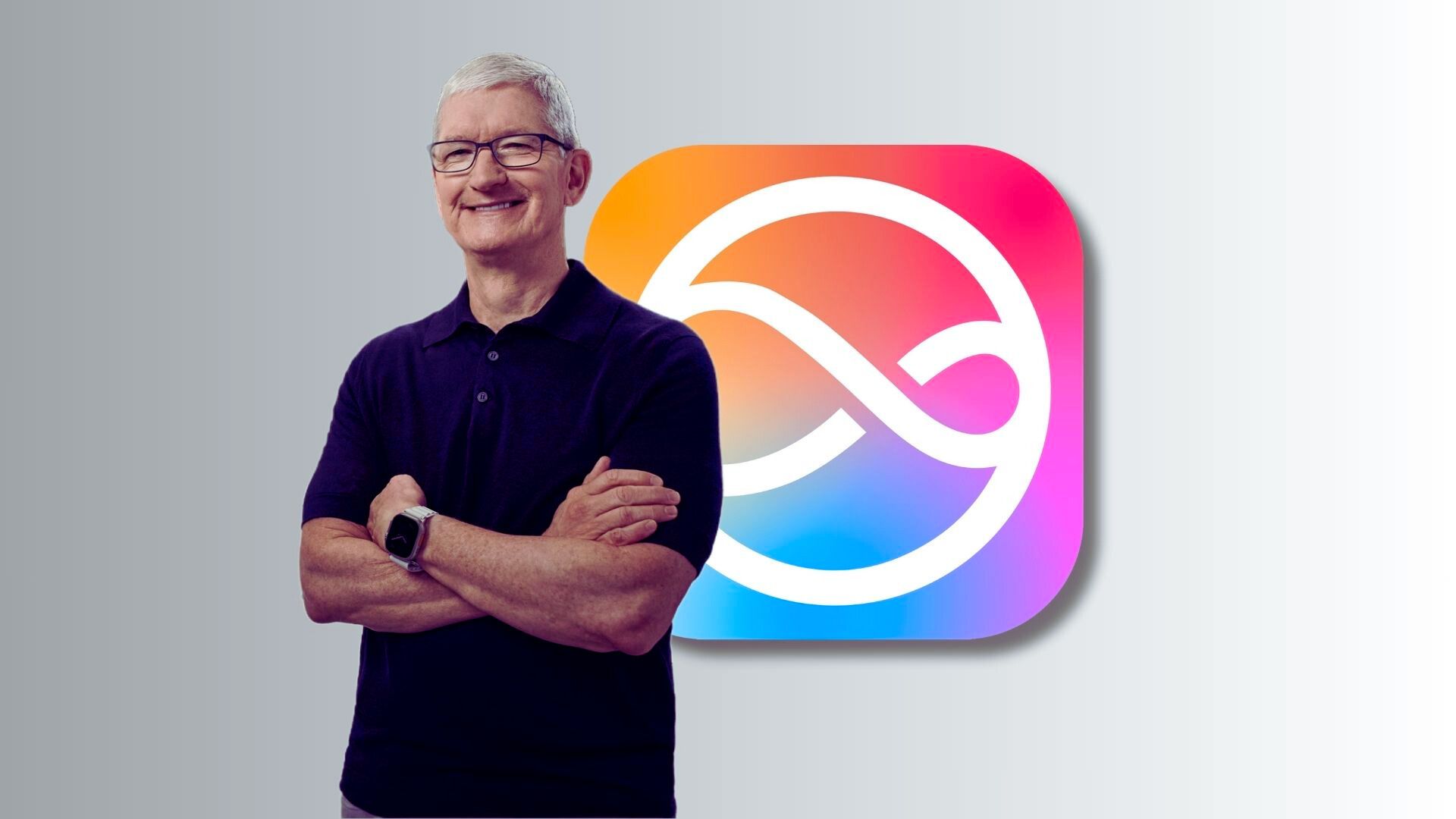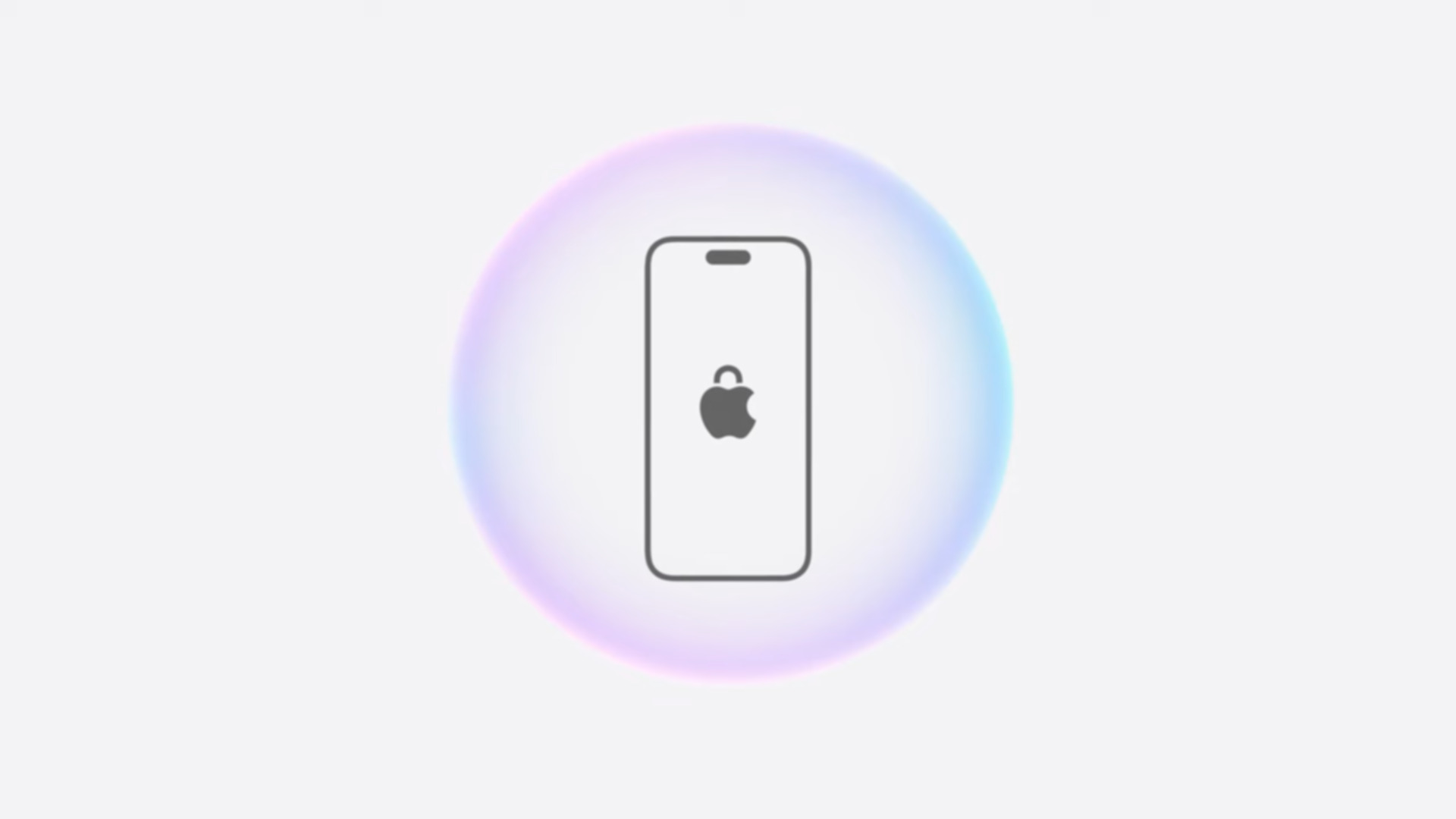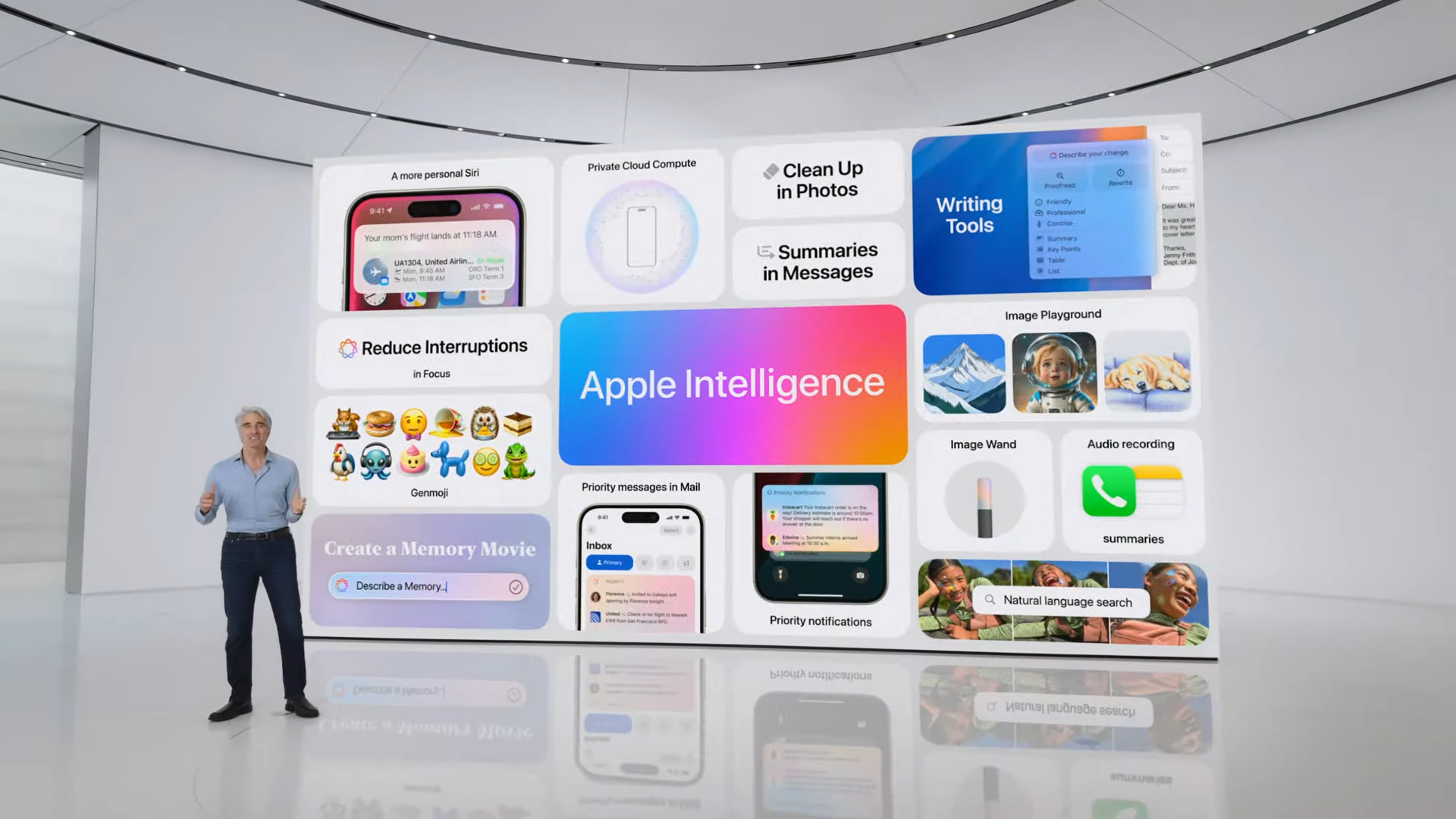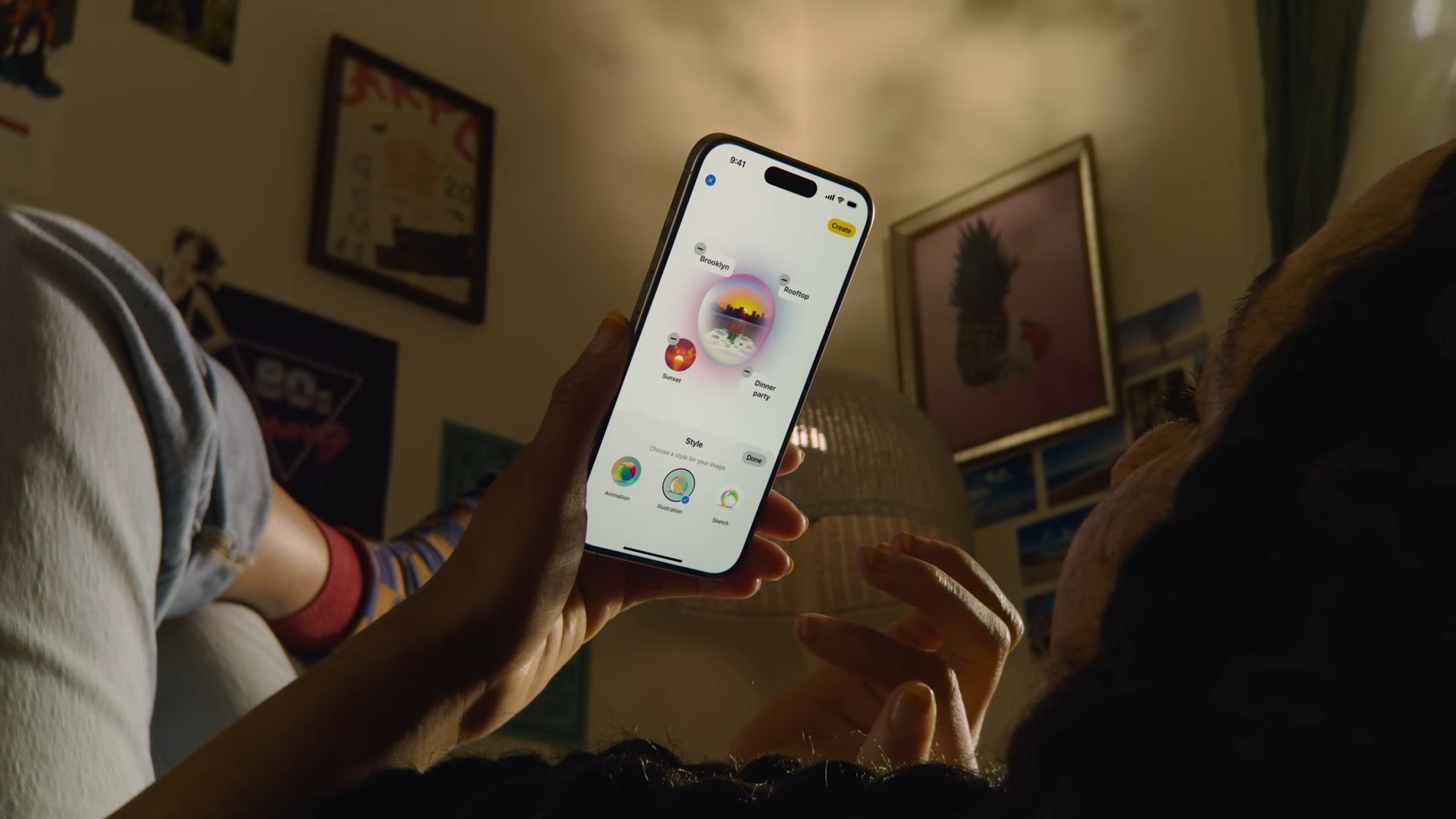
“We’ve been executing with AI for a long time.”
Apple CEO Tim Cook said these words after the announcement of Apple Intelligence at WWDC on Monday.
This comment goes against the narrative leading up to WWDC that Apple is “behind” on AI compared to rivals like Google and Microsoft. Tim Cook shared this and many other insights about Apple Intelligence in an interview with technology journalist Marques Brownlee of MKBHD Youtube fame on Wednesday.
Cook’s comments shed light on Apple’s approach to AI and challenge the idea that it’s somehow fallen behind. More importantly, Cook explained the role of privacy in Apple Intelligence, a crucial consideration for users.
Here’s a look at the highlights from Cook’s interview with Marques Brownlee and what his comments mean for users and the launch of Apple Intelligence.
Tim Cook's candor about Apple AI reveals the company's philosophy: "A thoughtful kind of way."
The highlight of Apple's keynote presentation at WWDC on Monday was Apple Intelligence, a new suite of features with an emphasis on generative AI. The announcement came at the crux of a heated year for AI, with Apple's rivals launching their own ambitious new features at Microsoft Build and Google I/O in May.
It's easy to look at the AI industry today and see Apple as a bit late to the game or even reluctant to embrace AI. However, according to Cook, that's not the case. In an interview for his YouTube channel, which claims 19 million subscribers, Brownlee asked Cook about Apple's position on generative AI in an interview at WWDC on Wednesday, to which Cook explained:
"Generative AI was never off the table. It was always about pursuing it in a thoughtful kind of way. So, that’s what we’ve done, and we’ve implemented it in ways that are less likely to create issues."
Generative AI was never off the table. It was always about pursuing it in a thoughtful kind of way. So, that’s what we’ve done and we’ve implemented it in ways that are less likely to create issues.
Tim Cook, MKBHD WWDC 2024 interview
Apple Intelligence is a blend of generative AI features and an upgraded version of Siri.
As Cook noted, many of the generative AI elements are relatively harmless and don't rely on large amounts of user data. For example, the new "Genmoji" feature will allow users to generate custom emojis.
To hear Cook tell it, appears the timing of Apple's plunge into generative AI wasn't about getting in on the AI hype but making sure Apple's approach focused on real benefits. This goal wasn't lost on commentators and journalists who observed that WWDC's Apple Intelligence segment focused on user outcomes and not just rushing out the technology for the sake of it. Cook mentioned this in his interview when discussing AI features on the Apple Watch, saying:
"We always talk about the benefit to the user and so the benefit to the user is crash detection and fall detection, not the technology behind the feature."
So, Apple's focus is clearly on building AI features that are legitimately useful to users. However, Apple focused a lot on "the technology behind the feature" with Apple Intelligence, particularly privacy.
“Privacy is a very key tenant of our thrust into AI”

Privacy was a major theme of Cook's interview with Brownlee. It's also an important concern for many consumers today, particularly since Apple has long had a reputation as a privacy leader, one built up by its technology and Apple marketers. With the company diving into generative AI, many people are rightfully concerned about whether Apple will be able to maintain its strict stance on privacy.
Luckily, Cook seems more determined than ever to protect Apple users' data. In the interview, he commented, "We have always been focused on privacy, and so privacy is a very key tenant of our thrust into AI... We’re not waiting for a comprehensive privacy legislation regulation to come into effect. We already view privacy as a fundamental human right."
Privacy also played a key role in the announcement of Apple Intelligence at WWDC on Monday. Craig Federighi, Apple's Senior Vice President of Software Engineering, noted in the presentation:
"You should not have to hand over all the details of your life to be warehoused and analyzed in someone's AI cloud. With Apple Intelligence, powerful intelligence goes hand-in-hand with powerful privacy."

You should not have to hand over all the details of your life to be warehoused and analyzed in someone's AI cloud.
Craig Federighi, WWDC 2024 keynote
Cook and Federighi's claims about privacy aren't empty, either. Apple seems to be taking legitimate steps to ensure no user data is stored, sold, or otherwise exploited for the sake of AI.
The company says that most of Apple Intelligence's features will be processed entirely on-device, which means user data doesn't have to go to the cloud. If a task is too demanding to run on-device, it will go through Apple's new Private Cloud Compute service, which never stores or shares user data. ChatGPT is also accessible through Apple Intelligence, but it has strictly limited access and requires user permission for every request.
All of those features are steps in the right direction when it comes to AI data privacy. Apple may have been "late" to the AI party, but it seems to have found a sweet spot that leverages its vertical integration. By running mainly on-device, Apple Intelligence can be personalized without compromising privacy.
The question is, will Apple Intelligence work the way Apple claims it will?
Should you try the Apple Intelligence beta?

One key detail missing from Apple's keynote presentation on Monday was the release date for Apple Intelligence. It will be a beta feature in iOS 18, iPadOS 18, and macOS 15, but none have official release dates yet. However, Apple usually releases major software updates in the fall, particularly in September. So, that's the earliest we can expect to have a chance to try out Apple Intelligence.
Unfortunately, it might be tricky. Most iPhones can't run Apple Intelligence, and only iPads and Macs with M-series chips are compatible with it. This is due to the high processing power requirements for on-device AI.
However, if you have a compatible device, there's little risk of trying out Apple Intelligence. Your data won't go anywhere, and if you find that the new AI features aren't helpful, you can simply ignore them. Apple Intelligence is opt-in, so if you don't want to use it at all, you won't be forced to.
I, for one, will be very interested in seeing what Apple Intelligence is all about this fall.
As Apple co-founder Steve Wozniak said in an interview on Tuesday, "I was impressed by the demos. I always am. But I still believe strongly you should try it and find out after [the demo] is over."







